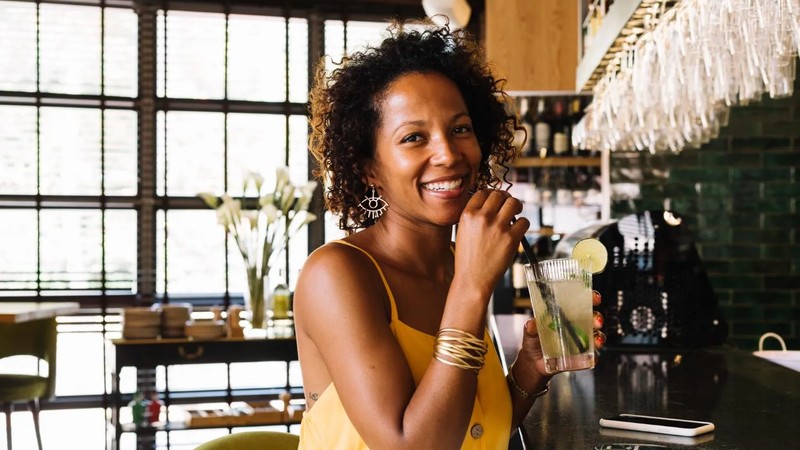It’s hard to believe that we’re already closing in on the end of Sober October. Hopefully, you’ve found a new perspective on your relationship with alcohol during the month.
Now that the month is almost over, you’re probably wondering what to do next. Do you continue going alcohol-free, cut back a little or simply continue where you left off?
While you might think that it was merely a month-long challenge, you would be surprised to learn that you’ve actually tapped into a massive, growing movement called Sober Curiosity.
It’s a movement that’s not about labels, addiction, or judgment. It’s simply about asking the question: “What would my life look like if I stopped drinking out of habit and started making mindful choices instead?”
The concept gained global momentum when British author and journalist Ruby Warrington published her book, Sober Curious, in 2018.
She essentially gave a name and a framework to something many people were already feeling: that a problem with alcohol isn’t required to quit or cut back.
She argued that since we scrutinise everything else in our wellness routine, from what we eat to how much we exercise, it’s time to apply that same critical focus to our drinking habits.
It was the start of reframing sobriety as a self-improvement tool rather than a consequence.
The movement resonated deeply in South Africa, fueled by a perfect storm of health awareness, social media, and local innovation.
The wellness revolution
Today’s South Africans are focused on holistic well-being. We’re tracking runs on the promenade, practising pilates, and stocking up on healthy eats.
Alcohol, which can derail sleep, increase anxiety and compromise physical performance, suddenly feels like a heavy compromise.
The Sober Curious approach allows people to align their social life with their gym goals.
It’s about optimising performance, whether that’s at work, in a weekend race, or simply showing up fully present for your family.
The motivation is self-empowerment, not regret.

Gen Z is rewriting social rules
Younger South Africans are the main drivers of this surge.
They prioritise mental health and authenticity, and they are using social media to make “dry” the new “cool.”
They’re not afraid to challenge the traditional South African social pressure to vibe with a drink in hand.
For them, being sober-curious isn’t a sacrifice but a smart, intentional choice that protects their mental state and their future reputation.
The narrative has shifted from “Why aren’t you drinking?” to “Wow, you look great! What’s your secret?”
The non-alcoholic game has changed
Perhaps the most practical reason for the trend’s success here is the local explosion of quality non-alcoholic (NA) beverages.
Our own brands have stepped up, ensuring you never have to settle for just water or a sugary drink.
You can now find sophisticated, high-quality alternatives in any major bottlestore or hip bar:
- Premium NA beers: Locally brewed NA options that taste like the real deal, perfect for the braai.
- Zero-proof spirits and mocktails: Craft NA gins and whiskies that allow for complex cocktail mixing, or ready-to-drink options, are growing in popularity.
- Wine alternatives: Even our renowned wine farms have adapted, giving you options that let you toast without the after-effects.
The beverage industry realised that people weren’t leaving the bar, but were just looking for better options.

Where to from here?
As you finish your October challenge, remember that Sober Curiosity gives you freedom.
It’s not about making a single, dramatic declaration. It’s about maintaining a questioning mindset towards every drink you are offered.
Maybe you decide to be soberish, only drinking on special occasions. Maybe you continue your Sober October streak well into November.
Whatever you choose, you are now part of a movement that is healthier, clearer, and more popular than ever.
The power to choose is in your hands, and that, in itself, is something worth celebrating.
Lifestyle
